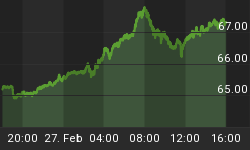One of the regular reporters on CNBC was comparing Greece to the subprime "crisis" of 2007, in that "investors" (I am sure that term is being used very loosely) are not going to make the same mistake as they did in 2007 by underestimating the "contagion" that subprime contained.
I feel compelled to correct him. There was no contagion from subprime. This is not a toxin nor infectious condition. The reason why many people missed the boat and failed to understand the speed of the spread of devaluation was because they failed to realize that the cause of the subprime drop was poor underwriting of loans. If anything was a contagion, it was the greed born from the ability to pass around risks that were poorly underwritten using other people's money. Read up on the entire history in my "Asset Securitization Crisis" series.
The same issues are applying to Greece, Portugal, Spain, Ireland, California, New York and the CEE countries. Poor fiscal prudence was abound in the bubble boom times, with budgets and asset prices bulging. When the bubble pops, the revenues and asset values deflate but the debt and deficits remain the same, no they actually grew.
When (not if) the sovereign debt and deficit issues become more prevalent in the media (as opposed to just BoomBustBlog subscribers), it would be inaccurate to label it as a contagion when the reality of the situation is that it is simply the natural progression of poor fiscal management after a credit, real and financial asset bubble. I will try to put my CEE research and opinion out by tomorrow to exemplify how far and quickly this can roll through Europe.
I have been warning of this since this time last year, with my BBVA and Spain macro analysis. See the refresher that I released about a week ago, just in time to take advantage of the melee': The Spanish Inquisition is About to Begin.
















